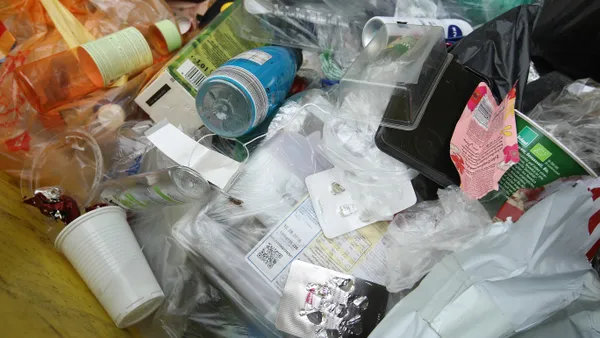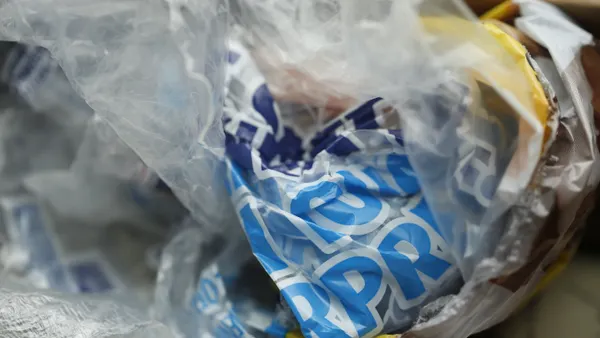Dive Brief:
- Rhode Island could reverse a ban on using glass as alternative daily cover in place of soil with approval from the state legislature this week, as reported by ecoRI News. The Rhode Island Resource Recovery Corporation (RIRRC) estimates this could save $50,000 per year.
- During an April 4 Senate committee hearing, RIRRC Executive Director Joseph Reposa said his agency receives around 9,000 tons of glass per year and is currently stockpiling it to avoid taking up capacity in the state-owned Central Landfill.
- With many parts of New England "in a state of panic" following the closure of a key end market, Reposa said turning glass into alternative daily cover would be the "very best beneficial use." RIRRC has also considered using the material for construction applications, such as installing new gas collection wells.
Dive Insight:
Glass recycling remains a challenging enterprise in various parts of the country due to transportation costs and other factors. The recent closure of an Ardagh bottling plant in Milford, MA has made New England the latest example of this and caused repercussions throughout the region. Without that reliable end market for cullet, Strategic Materials has curtailed its demand, forcing many local governments and recyclers to stockpile or dispose of the material.
This has led at least one New Hampshire town to stop collecting the material in its recycling program, while others in New England are waiting to see what happens with market options first. Local program managers are concerned such a significant change could be disruptive to recycling habits for all materials and are hesitant to take the step without a long-term plan. In Massachusetts the Department of Environmental Protection has approved multiple waivers — some one-time and others through mid-May — and begun facilitating discussions about where to go next.
This has meant raising awareness about construction aggregate applications, grant funding and alternative markets. At this year's MassRecycle conference, the DEP mentioned interest from multiple out-of-state companies including one from Philadelphia. Waste Dive has also heard from a range of companies that say they're interested in purchasing the material for insulation and other applications.
RIRRC told the Senate committee it doesn't believe any other markets can fully meet the state's needs, making landfill cover the most efficient option. Rhode Island allowed this practice until 2012 when glass was put on a banned cover material list — which also included construction and demolition debris and organic material — due to odor concerns. The inclusion of glass on that list was confusing to many at the time, though may have also prompted efforts to find new markets for it after a period of unprofitable disposal.
Now that Rhode Island is back in the same place again it may rectify that decision once and for all. Following passage by the Senate Environment & Agriculture committee last week, this bill is now scheduled for a hearing in the Senate on April 11 and a House committee on April 10.










